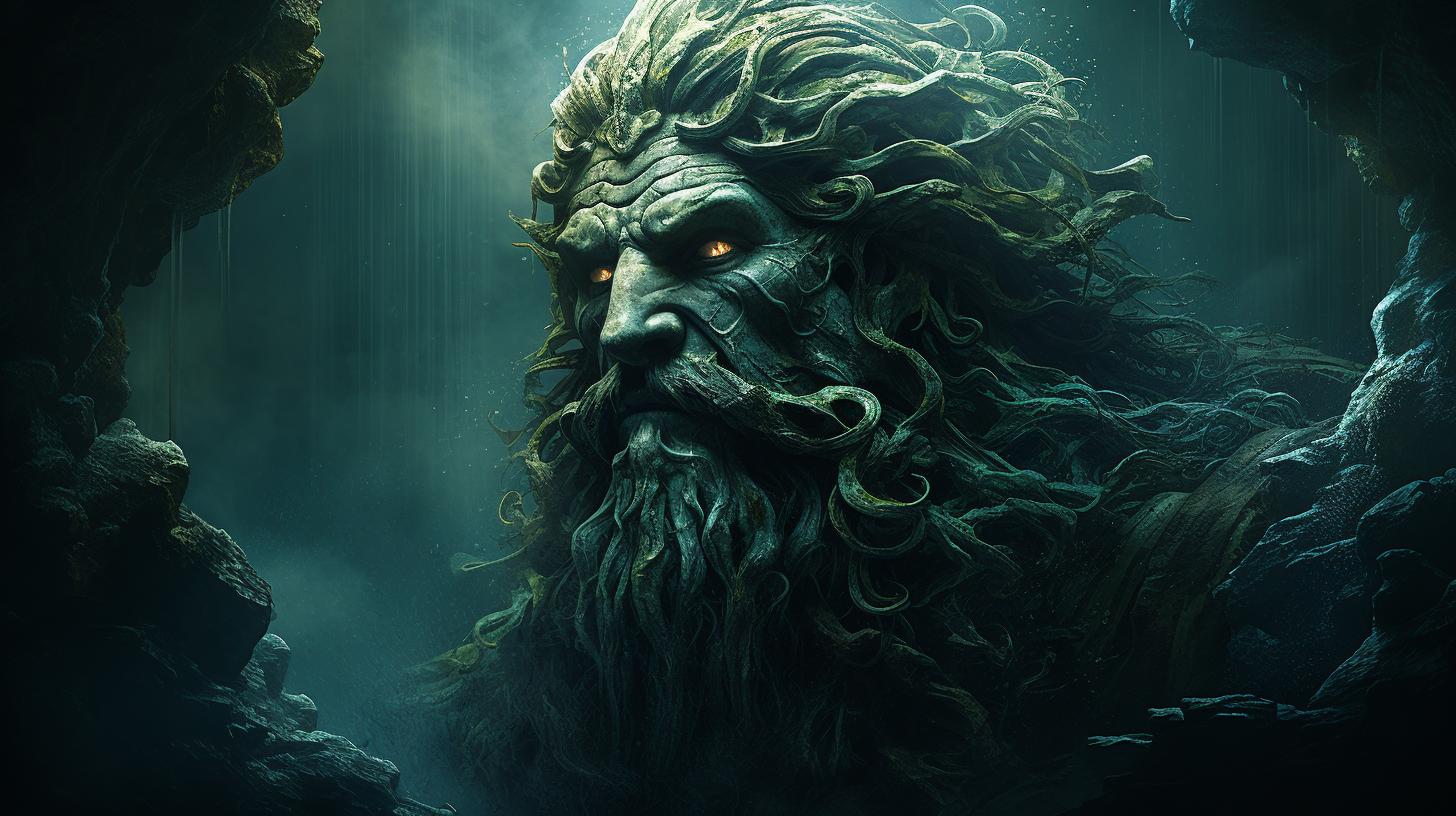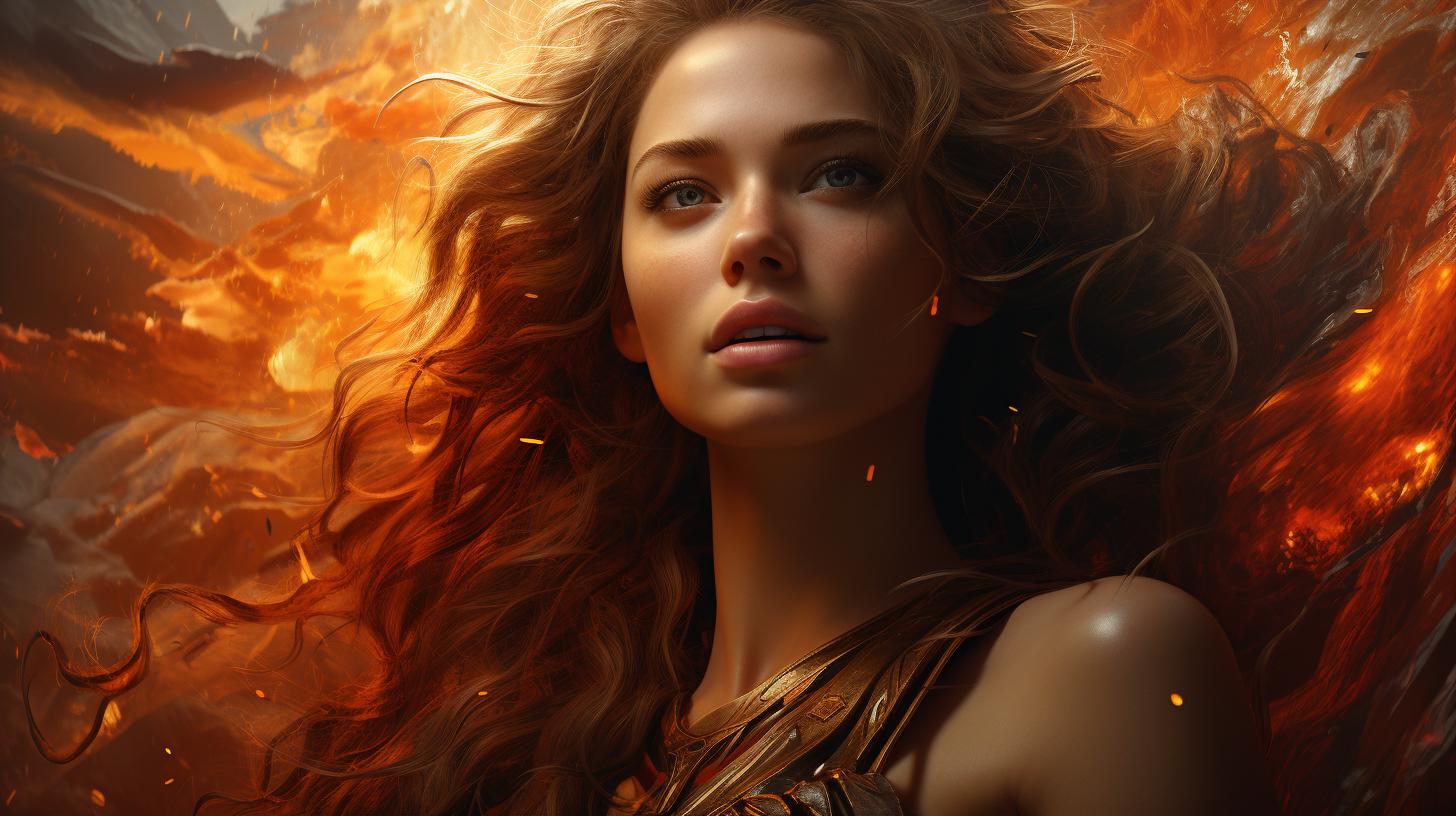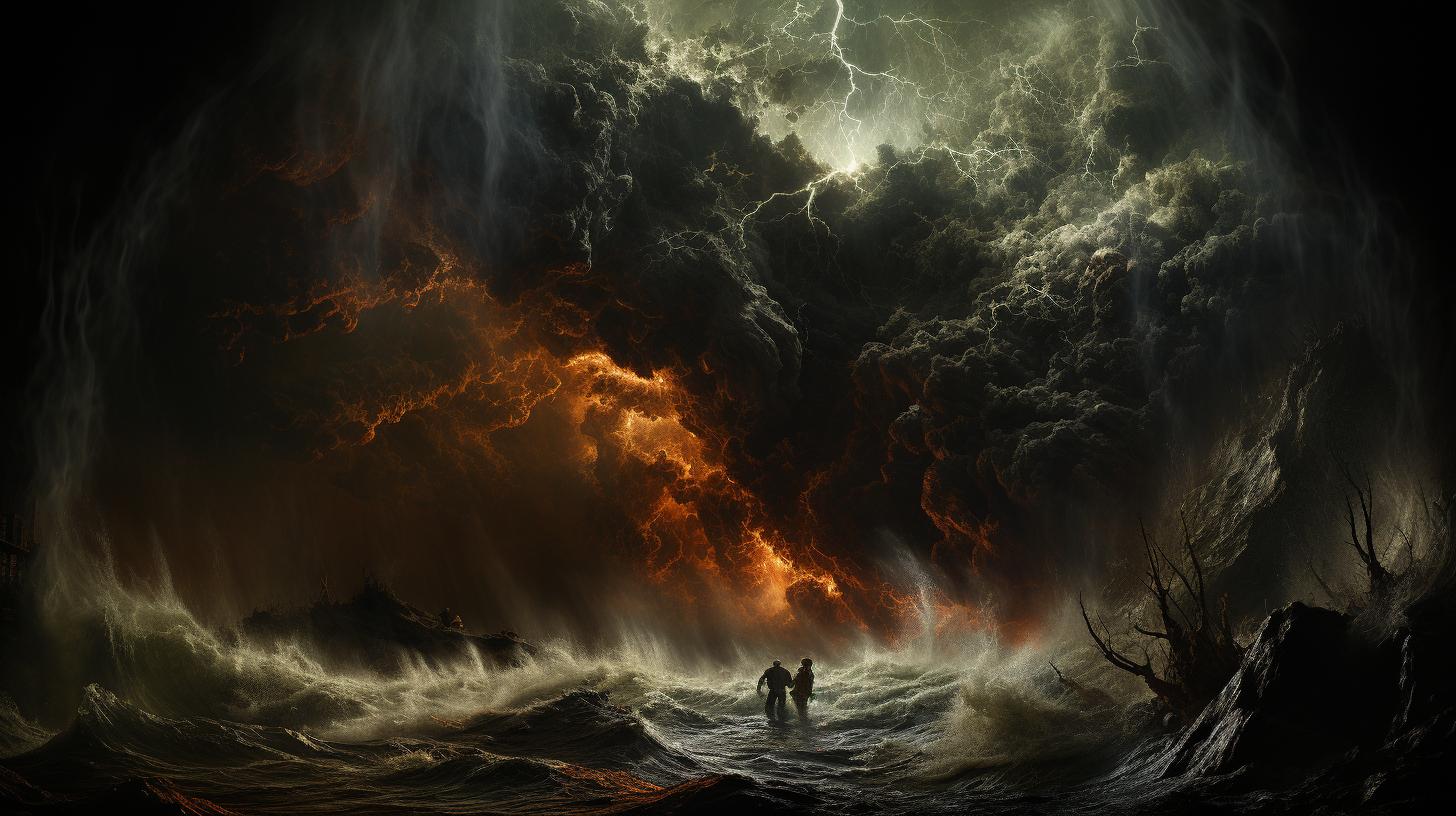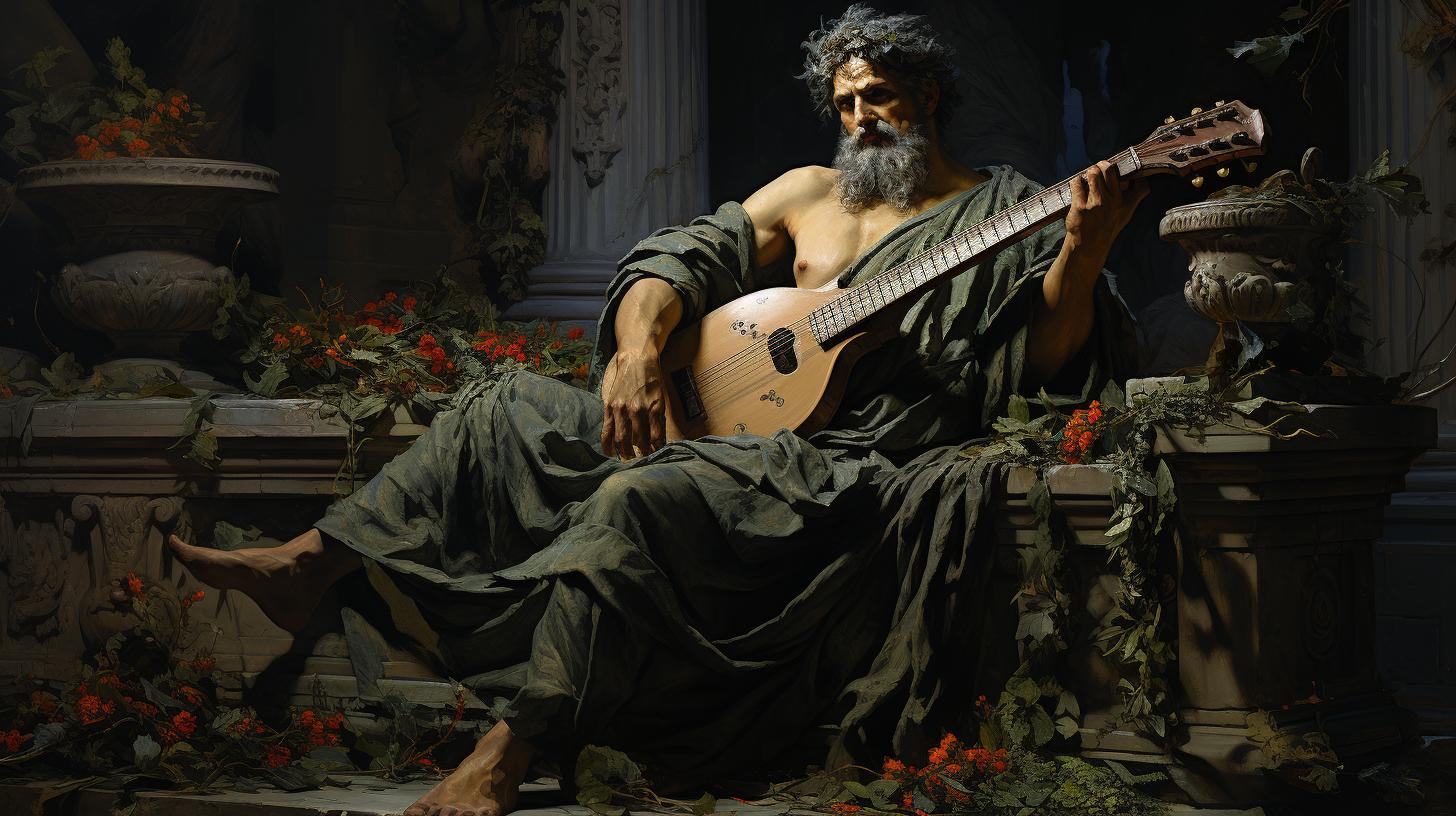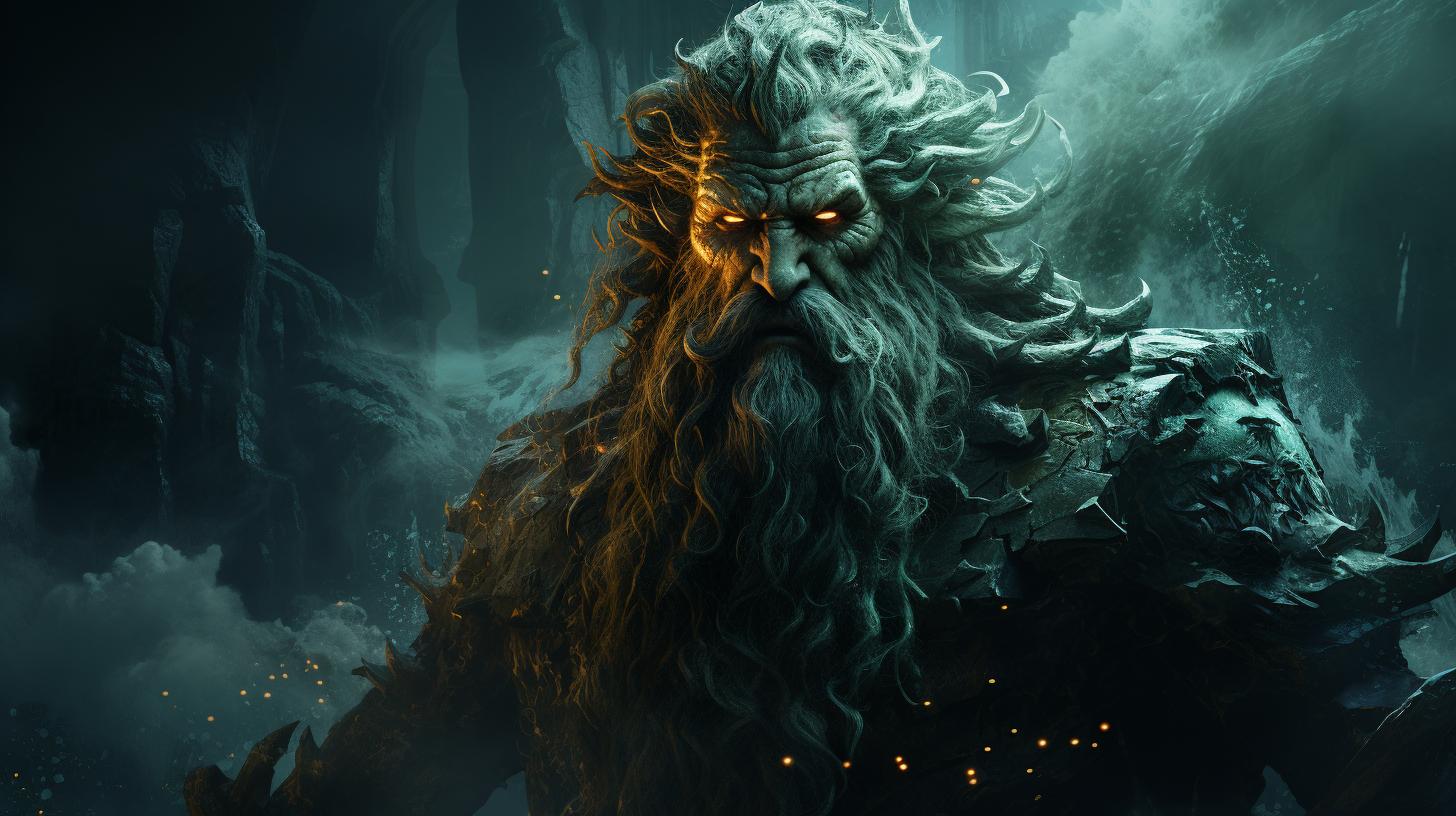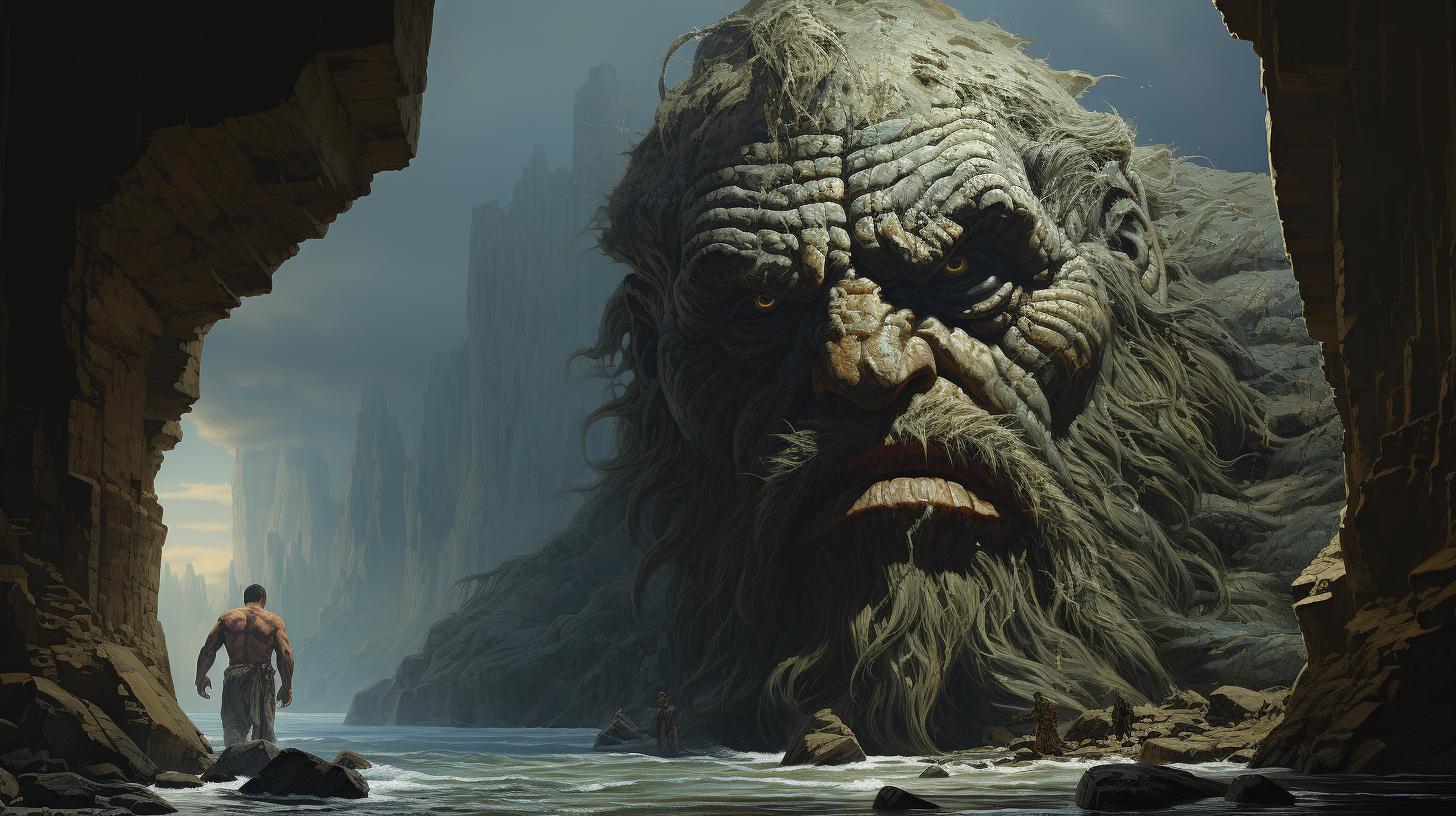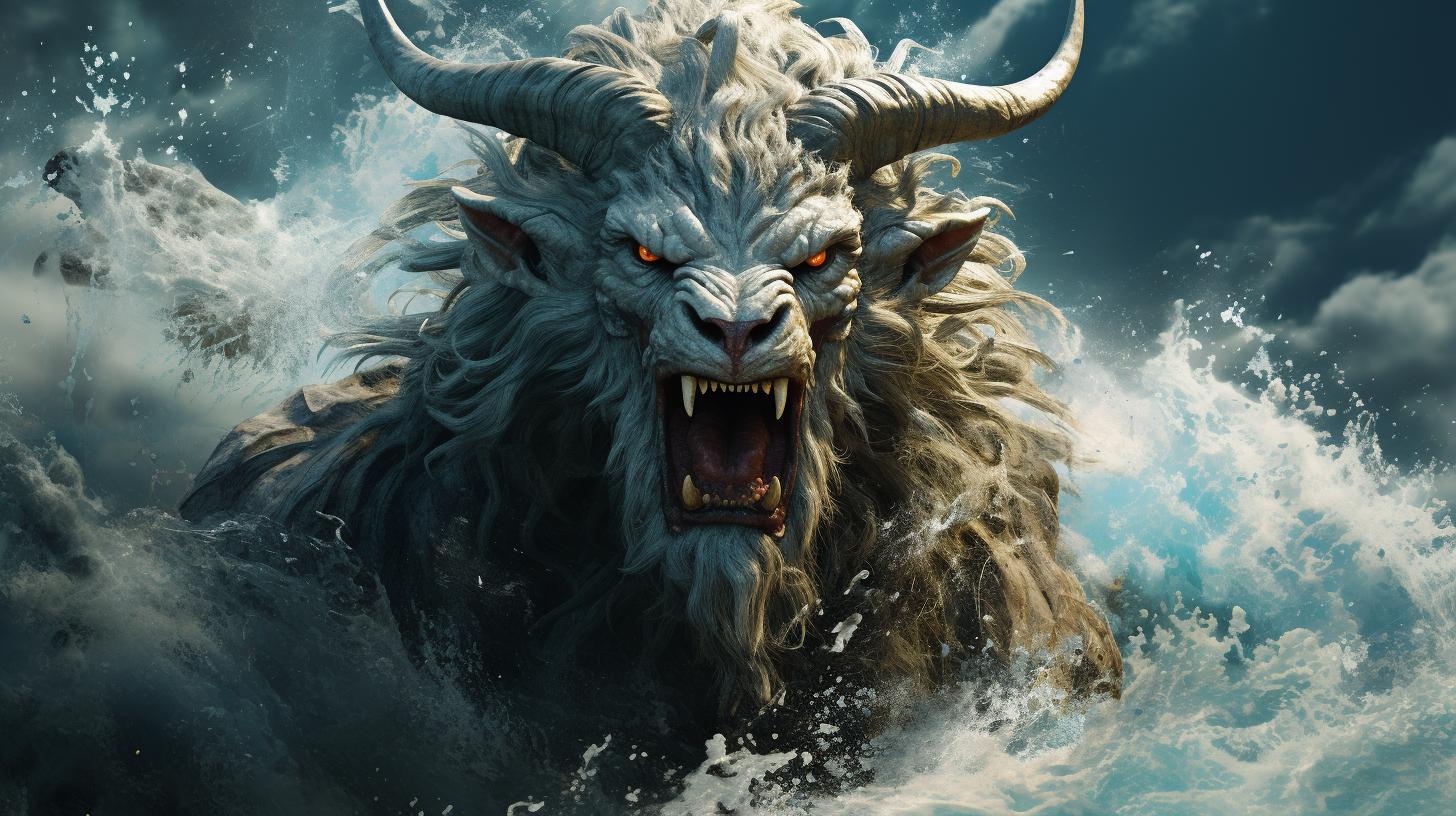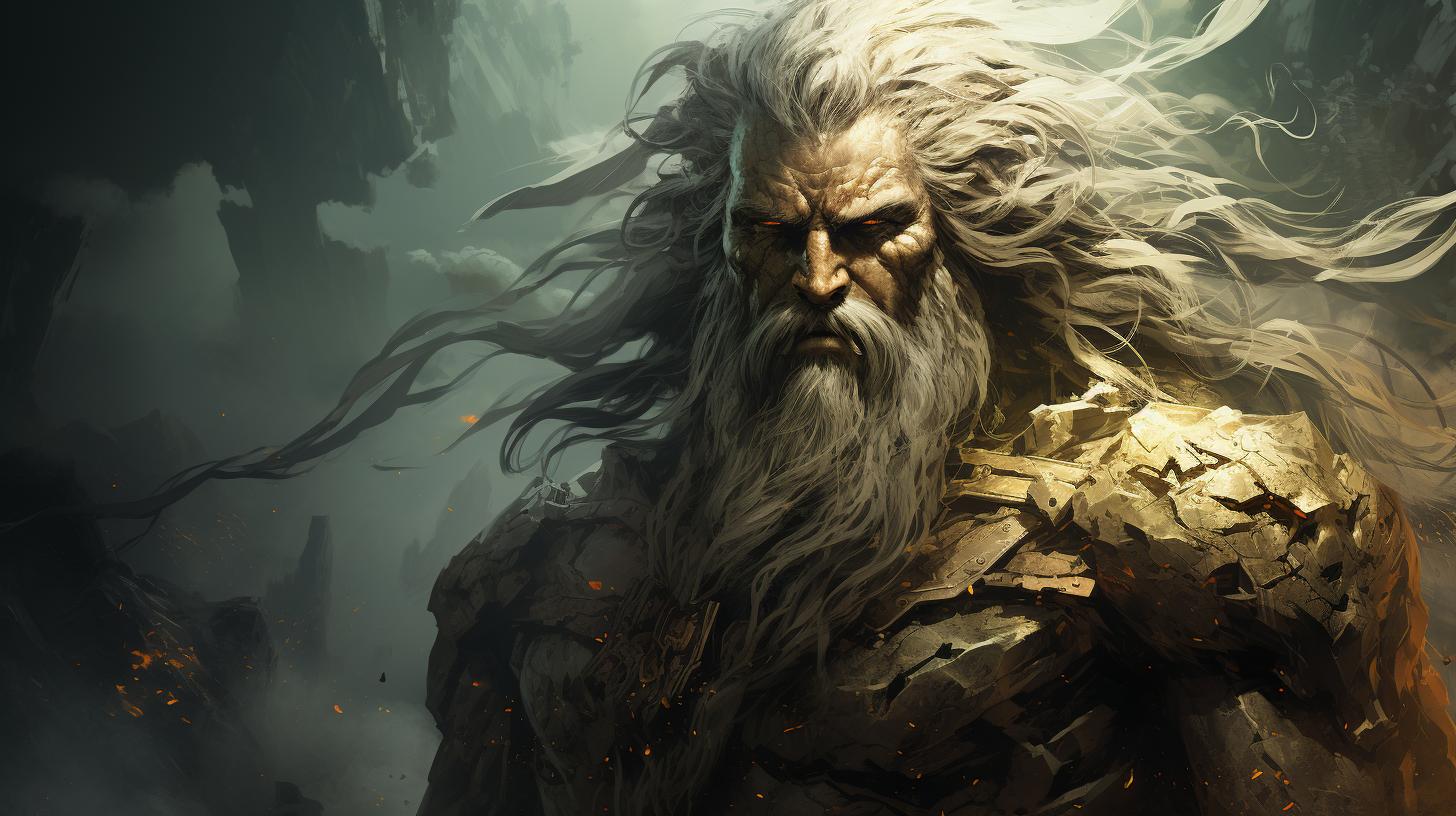The Mighty Pontus: Exploring the Greek God of the Sea
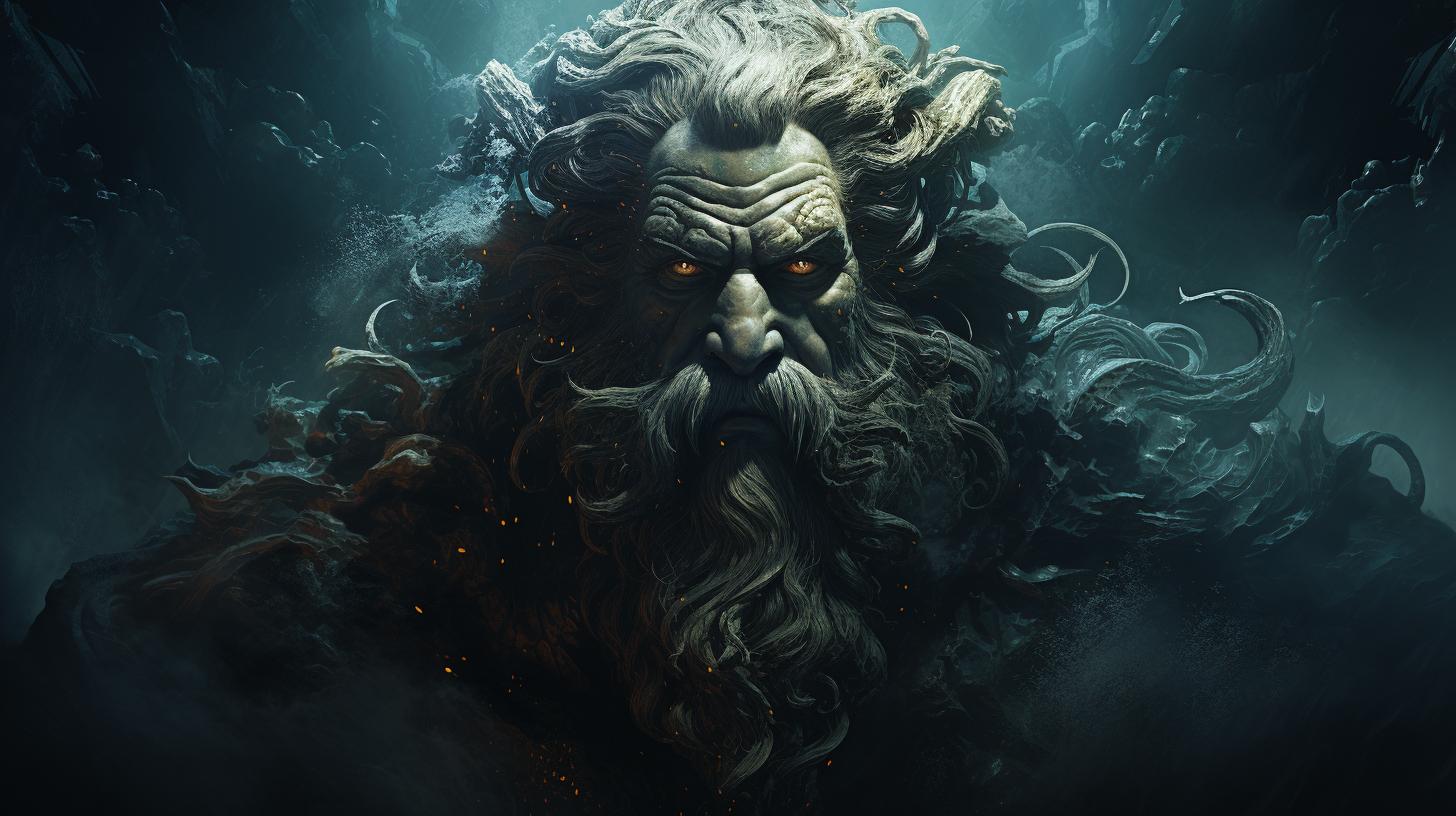
The Greek god Pontus is an important figure in Greek mythology, particularly as the primordial god of the sea. Born to Gaia, the personification of Earth, Pontus holds a crucial role in the cosmology of Greek mythology.
He is often referred to as the personification of the sea itself, symbolizing the vast and mysterious expanses of the open waters. With his significant impact on Greek mythology as the god of water, Pontus is associated with the creation of diverse marine life and holds a significant place among the primordial deities.
Origins of Pontus in Greek Mythology
Origins of Pontus in Greek mythology trace back to the creation of the universe and the existence of primordial deities. In Greek cosmology, the universe began with Chaos, a void from which all things originated.
From Chaos, various gods and goddesses emerged, including Gaia, the personification of Earth. It is from Gaia that Pontus, the primordial god of the sea, was born.
Creation of the Universe and the Primordial Deities
The ancient Greeks believed that the universe was a result of the interplay between Chaos and Gaia. Chaos was the formless void, while Gaia represented the physical embodiment of the Earth.
From this union came forth the primordial deities, powerful entities that emerged before the Olympian gods.
These primordial deities embodied the fundamental aspects of the cosmos. They included entities like Ouranos (Uranus), the personification of the sky, and Pontus, the god of the sea.
They played essential roles in the early mythological narratives that shaped the Greek understanding of the world.
Pontus’ Birth and Parentage
According to Hesiod’s ‘Theogony,’ Pontus was born to Gaia without a father. This marked him as a crucial figure in Greek cosmology, as it highlighted his origins as one of the original entities in the universe.
Pontus’ birth from Gaia reinforced his association with the Earth and his domain over the vast expanses of the sea.
It is worth noting that some sources, such as Hyginus, suggest that Pontus is the son of Aether, the personification of the upper atmosphere, along with Gaia. However, the prevailing account in Greek mythology is that Pontus was born solely from Gaia.
Regardless of his parentage, Pontus held a significant role as the god of the sea in Greek mythology.
His birth without a father underscores his stature as a primordial deity and sets the stage for his important presence and influence in the mythological narrative.
Pontus: The Personification of the Sea
Pontus, the Greek god of the sea, holds a prominent place in Greek mythology as the personification of the vast and mysterious open waters.
He embodies the power and essence of water itself, symbolizing its vital role as the lifeline of the planet. Pontus played a significant role in the cosmology of Greek mythology, particularly before the Olympian gods came to rule the Earth.
Pontus as the God of Water
As the god of water, Pontus represents the fundamental force that sustains life and influences the natural world. His name is often used to describe the expansive and enigmatic nature of the sea.
Pontus’ association with water highlights its essential role in the functioning of ecosystems and the interconnectedness of all living beings.
Pontus’ Role Before the Olympian Gods
Pontus’ importance extends beyond his role as the personification of the sea. Before the reign of the Olympian gods, primordial deities like Pontus held significant power and influence in shaping the universe.
With his birth from Gaia, the personification of Earth, Pontus emerged as a crucial figure in the cosmogony of Greek mythology. He contributed to the establishment of the natural order and the emergence of other important deities.
Prior to the ascent of the Olympian gods, the gods of the sea, including Pontus, played a vital role in shaping and governing the Earth. They were responsible for the creation of diverse marine life, the regulation of tides and currents, and the establishment of geographical features related to the sea.
Their influence was significant in maintaining the balance and harmony of the natural world.
Although Pontus may not have the same level of recognition as the well-known sea god Poseidon, his significance lies in his status as a primordial deity and the personification of the sea.
Through his associations and contributions, Pontus played a crucial role in Greek mythology and the understanding of the powers and forces of the natural world.
Pontus’ Children and Offspring
Pontus, the primordial god of the sea, had various children and offspring who played significant roles in Greek mythology. Let’s explore some of them:
Nereus: The Old Man of the Sea and Father of the Nereids
Nereus, a son of Pontus, is known as the “Old Man of the Sea.”
He is often depicted as a wise and prophetic figure. Nereus fathered the Nereids, a league of 50 beautiful sea nymphs. These nymphs are associated with the allure and enchantment of the sea.
Thalassa: The Sea Goddess and Mother of Sea Creatures
Thalassa, a sea goddess, is another child of Pontus. She symbolizes the sea itself and is considered the mother of various sea creatures. It was believed that all kinds of fish, whales, and sea monsters were Thalassa’s offspring, highlighting her role as the creator of marine life.
Thaumus: Father of the Harpies and Associated with the Spirit of the Sea
Thaumus, also born from Pontus, is associated with the spirit of the sea. He is known as the father of the Harpies, winged creatures with the faces of women and bodies of birds.
The Harpies are often depicted as swift and fierce, symbolizing the untamed nature of the sea.
Ceto and Phorcys: Parents of Enchanting Beings and Terrifying Creatures
Ceto and Phorcys, a married couple and children of Pontus, brought forth various enchanting and terrifying beings. They are the parents of the Sirens, enchanting creatures who lured sailors with their captivating songs; the Grey Sisters, three old women who shared one eye and one tooth among them; and the Gorgons, terrifying female creatures with snakes for hair and the power to turn anyone who looked at them into stone.
These children and offspring of Pontus played integral roles in Greek mythology, adding depth and complexity to the world of the sea and its creatures.
Pontus’ Significance and Impact in Greek Mythology
Pontus, the primordial god of the sea in Greek mythology, holds immense significance in the realm of Greek myths.
As a key primordial deity, Pontus played a vital role in shaping the cosmology of ancient Greece. In this section, we explore Pontus’ role as a primordial deity and as the creator of diverse marine life.
Pontus’ Role as a Primordial Deity
As a primordial deity, Pontus is considered one of the original entities in the universe. Born from chaos and the offspring of Gaia, the personification of Earth, Pontus holds a significant place in Greek mythology.
He predates the Olympian gods and played a crucial role in the early formation of the cosmos.
Pontus’ association with the sea and his status as a primordial god highlight his importance in the grand scheme of Greek mythology.
He represents the fundamental elements of water and life, symbolizing the vastness and mysteries of the ocean.
Pontus: The Creator of Diverse Marine Life
One of the key contributions of Pontus to Greek mythology is his role as the creator of various sea creatures and beings from the deep ocean. Through his unions with Gaia and Thalassa, Pontus fathered a multitude of important offspring.
- Nereus: Nereus, known as ‘The Old Man of the Sea,’ is one of Pontus’ notable children. He is the father of the Nereids, a league of 50 extremely beautiful sea nymphs.
- Thalassa: The union between Pontus and the sea goddess Thalassa gave rise to various sea creatures, including fish, whales, and piranhas.
Pontus’ children with Thalassa represent the diverse marine life that inhabits the sea.
- Thaumus: Thaumus, another son of Pontus, is associated with the spirit of the sea. He is linked to being the father of the Harpies, winged creatures with the faces of women and the bodies of birds.
- Ceto and Phorcys: Ceto and Phorcys, married to each other, are the parents of enchanting beings such as the Sirens, the Grey Sisters, and the Gorgons. These creatures possess unique abilities and characteristics, reflecting the complexity and power of the sea.
Through his offspring, Pontus demonstrates his creative influence in shaping the vast array of marine life and mythological beings in Greek mythology.
His role as the creator of diverse creatures highlights his close association with water and the richness of the sea.
In summary, Pontus’ significance in Greek mythology lies in his role as a primordial god and the creator of important sea creatures.
As a personification of the sea, Pontus represents the fundamental forces of water and life. His impact is felt through his role in the cosmology of Greek mythology and the creation of diverse marine beings that continue to captivate our imaginations.
Pontus in Art: Depictions and Symbols
In art, depictions of Pontus are not as prevalent as those of more well-known sea gods like Poseidon. However, there is one notable mosaic created by the Romans that immortalizes Pontus and offers insight into his visual representation.
This mosaic, believed to be dated back to the ancient Roman period, portrays Pontus as a bearded man rising from the water, surrounded by fish. It is a striking image that showcases his association with the maritime world.
The mosaic presents Pontus as a powerful figure, with his head crowned by what appears to be the tails of lobsters. This symbolizes his leadership and authority over the vast and diverse marine life.
The portrayal of Pontus as a bearded man aligns with the traditional depiction of many ancient deities, representing wisdom and age. This visual representation effectively captures Pontus’ significance as a primordial god and the personification of the sea.
The inclusion of fish in the mosaic further emphasizes Pontus’ role as the god of water and the creator of marine life. Fish, as well as other sea creatures, are believed to be his offspring, highlighting his divine power and influence over the mysteries of the deep ocean.
The mosaic not only showcases Pontus’ physical appearance but also symbolizes his connection with the vastness and beauty of the sea.
It is important to note that this mosaic is just one representation of Pontus in art, and there may have been other depictions throughout history. However, due to limited surviving artwork and records, our knowledge of Pontus in art is relatively limited compared to other gods in Greek mythology.
Nevertheless, this mosaic serves as a valuable glimpse into how ancient civilizations visualized and interpreted Pontus, further solidifying his significance in Greek mythology and the artistic representation of the sea.
Pontus vs. Poseidon: Comparison and Contrast
When examining the Greek gods associated with the sea, Pontus and Poseidon, there are notable differences and similarities to explore. Both figures hold significant roles, but with distinct characteristics that set them apart.
Firstly, Pontus is considered a primordial god, born from Chaos, emphasizing his ancient origins and his association with the creation of the universe. On the other hand, Poseidon is one of the twelve Olympian gods, who emerged later in Greek mythology and holds a more central role in the pantheon.
While both gods are connected to the sea, Pontus is seen as the personification of the sea itself, embodying its vastness and mystery. Poseidon, on the other hand, is the god of the sea, with dominion over its waters and the ability to control storms and earthquakes.
This highlights Pontus’ more abstract and conceptual nature compared to Poseidon’s active and tangible role.
Pontus’ offspring primarily consist of sea creatures and beings from the deep ocean, such as Nereids, Harpies, Sirens, Gorgons, and more.
These offspring reflect the diverse marine life associated with Pontus as the creator of the sea’s inhabitants. In contrast, Poseidon is often depicted as having closer ties to human affairs, with his children including famous figures like Polyphemus, the Cyclops, and Theseus, the hero.
Another significant distinction lies in their respective roles within Greek mythology. Pontus represents the primordial forces of nature and the sea’s essential presence in the universe. Being an Olympian god, Poseidon holds more influence over the world of humans, influencing maritime navigation, fertility, and even acting as a patron god of certain cities.
Despite these differences, it is important to recognize the interconnectedness of Greek mythology. Both gods contribute to the rich tapestry of stories and beliefs, with Pontus serving as a foundation for understanding the primal forces of nature and Poseidon personifying the powerful and often unpredictable aspects of the sea.
In conclusion, while Pontus and Poseidon share a connection to the sea, their roles, origins, and influences differentiate them within the realm of Greek mythology. Pontus embodies the primordial nature of the sea, while Poseidon takes on a more active and anthropomorphic role in human affairs.
Understanding the contrasting aspects of these gods contributes to a deeper appreciation of the multifaceted nature of Greek mythology.
.











